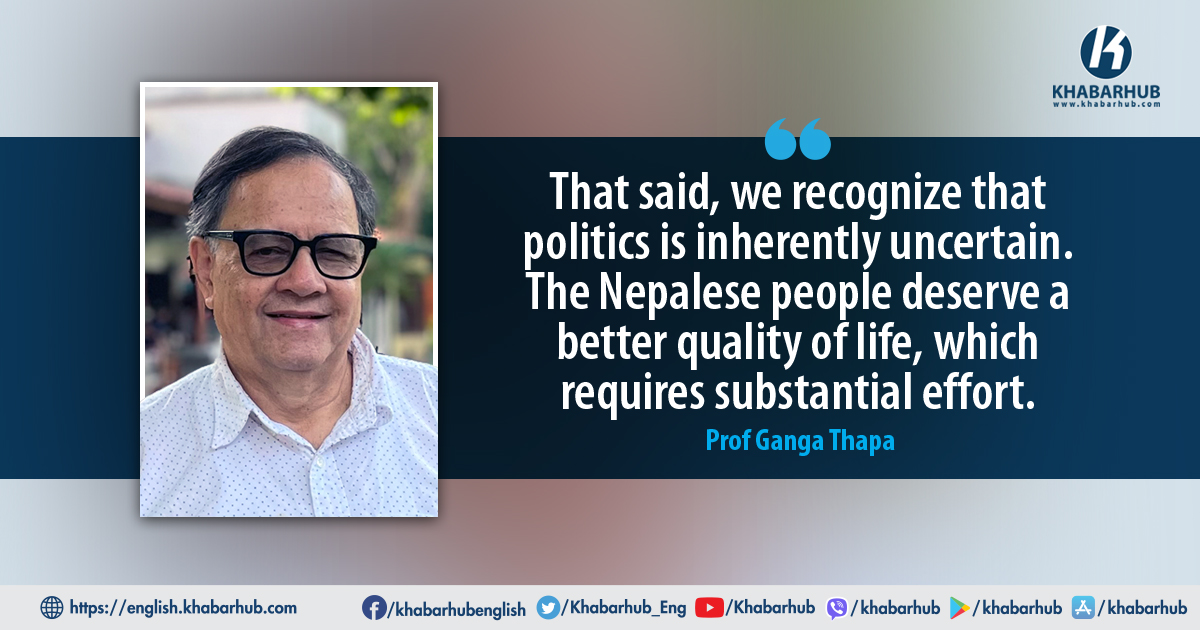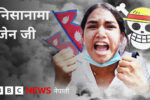Countless reviewers and specialists regard the collapse of Soviet communism as the catalyst for egalitarian social and political reforms, leading to more open societies that uphold individual rights and freedoms.
This shift encouraged citizens to actively participate in discussions about ideas, issues, and meaningful reforms.
It is widely acknowledged that political leaders across both the right and left spectrum frequently address issues such as exploitation, inequality, and injustice, while simultaneously aligning these concerns with their own divergent ideological goals.
Often articulated in vague yet appealing language—such as the promotion of ‘democratic values’—these leaders contribute to a political environment where populism increasingly dominates the discourse.
This, in turn, has led to what some describe as a form of ‘childish politics,’ characterized by a chaotic and fragmented political landscape.
Civil society is expected to play a vital role in mobilizing public engagement, cultivating democratic awareness, and driving systemic change, as individual efforts alone are often insufficient to safeguard liberty and counter hypocrisy, corruption, and injustice, making collective action through civil society crucial.
Newly democratized nations like Nepal face immense pressure to satisfy economic needs, often threatening the interests of entrenched oligarchs.
A vibrant civil society, grounded in a broader civil and moral compact, promotes self-reliance and critical reflection.
This enables societies to better influence, adapt, and build consensus, ultimately contributing to the development of civic democracy and a sense of patriotism.
But when rationality proves ineffective and self-serving narratives dominate, it becomes inevitable that the public will endure significant suffering.
Despite the world undergoing significant transformation, it remains beleaguered by relentless populist rhetoric and vulgarity, which have permeated the entire political sphere.
Regardless of what has occurred or is occurring at these events, there is a growing body of political science literature emphasizing the importance of cultivating strengths, optimism, gratitude, and a positive outlook, coinciding with the remarkable rise in the number of ostensibly democratic nations.
From ancient times to the present, however, numerous works have critically examined democratic theory, highlighting its limitations.
Chris Hedges, in his 2009 book Empire of Illusion, argues that democracy, as practiced within constitutional frameworks, has been deeply undermined.
He points to the role of judges, ruling oligarchs, corporations, and a narrow political and economic elite as contributing to this erosion.
These elites, drawn from sectors such as media, academia, non-governmental organizations, and entrenched bureaucracies, often pursue self-serving interests, a behavior that can be seen as selfish, unnatural, and even contradictory to the moral and social obligations that democracy is meant to uphold.
This small, privileged group frequently governs in the interest of moneyed powers, undermining the democratic process and stealing opportunities from the wider populace.
In essence, majoritarian governance—where the ruling elite rationally calculates decisions for their own advantage—may be one reason why democratic political systems have become increasingly disconnected from reality, particularly in their relationship with the masses.
As people struggle with how they are treated, this disconnect often leads to a loss of purpose and a growing desire for change.
The rapid pace of the modern communication revolution, unprecedented in history, complicates any notion of abandoning individual freedom or free markets.
Nevertheless, numerous political systems remain under-regulated, perpetuating a distinct division in the pursuit of an ideal society.
In such systems, the state often functions as a selective or oppressive entity, privileging certain groups while neglecting or marginalizing others.
Unequivocally, despite modern democratic leaders often proclaiming the importance of true political and economic freedom, their actions tend to be piecemeal, aimed more at pacifying public discontent than addressing systemic issues.
Nepal, too, is not immune to this broader trend. Nepal cannot be considered a successful example of a well-managed democracy, as evidenced by its frequent regime changes, including the adoption of seven constitutions in seven decades since 1948.
These shifts have largely been overseen by an intellectually bankrupt and corrupt elite.
Nepal’s current political leadership, hindered by self-deception and ulterior motives, has lost its effectiveness, despite the Nepali public’s ongoing debate about whether to reform the system or address the prevailing circumstances.
Moreover, Nepal’s political trajectory suggests that liberal democracy did not, as Francis Fukuyama famously proclaimed in 1989, mark ‘the end of history.’
Nepal’s political landscape has significantly deteriorated, giving rise to a corrupt, pseudo-democracy that has left its citizens frustrated, apathetic, and focused on political maneuvering rather than meaningful engagement.
While many still hold onto the belief that representative democracy, much like the proverbial ‘curate’s egg,’ has its merits, there is growing disillusionment with its practice.
One major issue is that qualified individuals are increasingly reluctant to enter politics, leaving voters with flawed candidates and deepening public skepticism.
As Madeleine Albright noted in 2018, democracy has value, but when a hostile majority besieges the people, the essence of popular rule is lost.
In such instances, populist movements fail to be genuinely ‘of the people’ or ‘by the people,’ instead paving the way for highly personalized leadership, as argued by Goodman (2023), which dangerously undermines democratic values.
Newly democratized nations like Nepal face immense pressure to satisfy economic needs, often threatening the interests of entrenched oligarchs.
While such pressures can open doors for popular empowerment, many democracies are facing an unprecedented crisis.
Governments worldwide are struggling to solve their citizens’ problems, leading to growing dissatisfaction, an erosion of trust in institutions, and the rise of authoritarian leaders who offer quick fixes, often at the expense of democratic principles.
Polarization and partisanship are fueling this decline, with ideological divisions causing political paralysis and preventing effective governance.
Economic inequality also contributes to this disenchantment. The widening wealth gap has left marginalized communities questioning the fairness and effectiveness of democratic systems.
Concentrating wealth and power in the hands of a few undermines the core principles of equality and fairness.
Ineffective governance, particularly in areas like climate change, healthcare, and education, further erodes trust and creates a vacuum for authoritarian leaders who promise simple solutions to complex problems.
Their success in collaborating with pro-monarchy parliamentary factions to shift Nepal from a unitary monarchic state to a federal democratic republic is considered a significant political achievement.
Globally, there are growing concerns over the rise of authoritarian tendencies within democracies.
One major issue is that qualified individuals are increasingly reluctant to enter politics, leaving voters with flawed candidates and deepening public skepticism.
The survival of democracies depends on their ability to adapt and respond to the needs of their citizens.
Addressing the root causes of decline is essential for democracies to reclaim their role in promoting equality, justice, and human dignity.
In Nepal, the challenges are particularly severe. Democratically elected politicians have become puppets of foreign interests, while corruption remains rampant.
Scandals involving top leaders—such as the Giribhandhu land scam involving Prime Minister Khadga Prasad Oli, Foreign Minister Arzu Deuba for her alleged involvement in a refugee resettlement scam, and the Baluwatar land scam tied to former prime ministers Madhav Kumar Nepal and Baburam Bhattarai—have only deepened public mistrust.
Restoring public confidence requires addressing these scandals and holding those involved accountable. In addressing the embezzlement of cooperatives, merely forming a committee is insufficient. Immediate legal action must be taken against those involved in the misappropriation, and efforts should be made to promptly return funds to the depositors.
It is regrettable that, since Khadga Prasad Oli assumed the office of Prime Minister on July 14, 2024, his government’s primary focus has been on marginalizing Kathmandu Mayor Balendra Shah and Rabi Lamichhane within the political sphere, rather than fostering a creative reimagining of the country’s future.
This short-sighted approach detracts from the opportunity to develop innovative strategies that could contribute to state-building and promote new modes of governance.
The issue in Nepal extends beyond individual cases of corruption. Citizens have lost trust in their leaders and the integrity of the political system.
Parliamentary politics have been deeply undermined by authoritarianism, leaving Nepal’s future uncertain.
Vigilance is necessary, as populism and foreign interference are likely to continue shaping Nepal’s political landscape, further destabilizing the country.
While politicians such as the late Girija Prasad Koirala, Madhav Kumar Nepal, and Khadga Prasad Oli—often perceived as pro-Indian—played key roles in the abolition of the monarchy, Pushpa Kamal Dahal and Baburam Bhattarai were pivotal in driving the final transformation.
Their success in collaborating with pro-monarchy parliamentary factions to shift Nepal from a unitary monarchic state to a federal democratic republic is considered a significant political achievement.
The tragic royal massacre, in which King Birendra and his family were killed, remains a sad and defining moment in Nepal’s history, reflecting the violent upheavals that have shaped the nation.
A significant group of domestic commentators contends that the abolition of the monarchy was strongly shaped by external influences, including India’s Congress Party, Bharatiya Janata Party, Communist parties, Nepal’s Maoist insurgents, and India’s Research and Analysis Wing (RAW).
Additionally, missionaries played a key role in amplifying international focus on this issue, further advancing the shift towards secularism.
It is worth noting that Nepal’s Maoist Party is remembered not only for its role in dismantling the monarchy but also for leading a decade-long insurgency, a conflict that claimed over 17,000 lives.
Nepal’s history of political upheavals and conflict, which has significantly contributed to its ongoing political instability, underscores the need for civic engagement, electoral reform, and stronger democratic institutions.
Scrutinizing Khadga Oli’s failings may seem unnecessary, as a supercilious and egocentric individual like him can singlehandedly disrupt or terrorize the system and relish in political brawls.
However, his protection of the wealthy and facilitation of corruption exemplifies the hypocrisy plaguing Nepal’s politics.
Yet, under politicians like Oli, the government has focused on concealing corruption rather than promoting transparency.
To achieve this, it is essential to remove the current criminal politicians who dominate the political landscape, enabling the next election to truly reflect the will of the people.
Despite rising to power with the support of Sher Bahadur Deuba, Oli has lost touch with the need for genuine accountability.
Politicians like Oli, Deuba, and Dahal—referred to as the ‘ODD’ trio—continue to dominate, stifling political discourse and blocking fresh ideas.
These ‘dinosaur politicians’ embody outdated ideologies that prevent the country from progressing.
Although many hope for change in the 2027 general elections, there is a growing fear that Nepal is sliding into hyper-partisanship, deepening public distrust in politics and undermining institutions like the courts, police, and civil service, which have increasingly been co-opted by ruling parties.
Vigilance is necessary, as populism and foreign interference are likely to continue shaping Nepal’s political landscape, further destabilizing the country.
Both citizens and leaders must advocate for reforms that promote accountability, fairness, and justice to safeguard Nepal’s democracy from further decline.
That said, we recognize that politics is inherently uncertain. The Nepalese people deserve a better quality of life, which requires substantial effort.
To achieve this, it is essential to remove the current criminal politicians who dominate the political landscape, enabling the next election to truly reflect the will of the people.









Comment